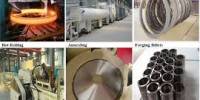Over the past several years, institutional investors have largely moved away from Chinese e-cigarette manufacturers, an industry that teamed up with torch workshops and lacked regular supervision.
But investors’ attitudes are changing as China imposes its toughest rules on electronic cigarettes. Myst Labs, a Chinese e-cigarette manufacturer Chenyue Jing, a chemist co-founded in 2019 co who was part of Jul’s team that invented nicotine salt, the main ingredient in vaping, recently raised a “ten thousand dollar” Series B financing round.
The financing was led by its existing investor, IMO Ventures. Thomas Yao, CEO and another co-founder of Mist, a founding partner of IMO Ventures. In March, a set of draft rules was released among China’s top technology policymakers that would bring e-cigarettes under the same regulators as traditional tobacco, meaning vaping companies would need licenses to operate the world’s largest producer, wholesale and retail, and e-cigarettes.
Fang Wang, head of marketing at Myst, told TechCrunch that the changes would give a push to lower-quality producers to control poor quality, leaving the industry with a handful of established and loyal players. As one, standard production is expensive, Lee said. Ceramic coils, every component of every vapor from batteries to fragrances and components must meet strict requirements. E-cigarette companies also have to pay tobacco tariffs, an important source of tax revenue for the Chinese government.
Another challenge is how to reduce nicotine content. The nicotine concentration of most current products on the market is relatively 3-5% higher, so if China complies with the EU 1.7% standard, many smaller brands will be forced out of their business because they do not know how to produce low-nicotine vapor that is still consumed by consumers. Satisfying the desire, Lee proposed. “We have received a lot of interest from investors in the last few months. Earlier, professional, institutional investors often avoided e-cigarette companies, but as the rules take shape, they are now showing more interest.
Myst declined to list its other investors but said they included e-bike sharing firm Lim, Facebook and high-profile individuals driven by the bitcoin industry. Most of Myst’s current sales come from China, where it has opened 600 stores and plans to reach one thousand stores in the next few quarters. Abroad, the startup has a retail footprint in Malaysia, Russia, Canada and the United Kingdom, where it is selling to more than 30 shopping malls and a few hospitals through its distribution partner Ecigwizard.
















